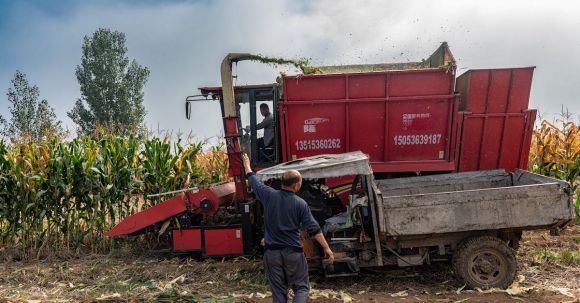Agriculture plays a crucial role in feeding the world’s growing population. As the demand for food continues to rise, farmers are constantly seeking ways to increase their crop yields and maximize productivity. Fortunately, advancements in technology and innovative farming practices have paved the way for effective crop management solutions. In this article, we will explore some of these solutions and how they can help farmers maximize their agricultural productivity.
1. Precision Farming: A Game-Changer in Crop Management
Precision farming is revolutionizing agriculture by allowing farmers to make data-driven decisions. This technology involves the use of sensors, drones, and GPS systems to collect real-time data about soil conditions, temperature, humidity, and crop growth. By analyzing this data, farmers can identify specific areas of their fields that require attention, such as nutrient deficiencies or pest infestations. This targeted approach enables them to apply fertilizers, pesticides, and water only where needed, reducing waste and optimizing crop growth.
2. Integrated Pest Management: A Sustainable Approach
Pests pose a significant threat to crop productivity, causing billions of dollars in losses each year. Integrated Pest Management (IPM) is an eco-friendly approach that combines various strategies to control pests effectively. These strategies include biological controls, such as the use of beneficial insects, crop rotation, and the application of pest-resistant varieties. By reducing reliance on chemical pesticides, IPM not only protects the environment but also promotes the long-term sustainability of agricultural systems.
3. Smart Irrigation Systems: Efficient Water Management
Water scarcity is a pressing concern in many agricultural regions. Smart irrigation systems, equipped with soil moisture sensors and weather data, enable farmers to optimize water usage. These systems deliver water directly to the plant’s root zone, minimizing evaporation and runoff. By providing crops with the right amount of water at the right time, farmers can prevent water stress and enhance plant growth. Furthermore, smart irrigation systems can be remotely controlled, allowing farmers to adjust watering schedules and monitor water usage from their smartphones or computers.
4. Crop Rotation: Nurturing Soil Health
Crop rotation is a traditional farming practice that involves growing different crops in a sequence over several seasons. This technique helps break pest and disease cycles, improves soil fertility, and reduces the need for synthetic fertilizers. By alternating crops, farmers can effectively manage soil nutrient levels and reduce the buildup of pests and pathogens. Additionally, certain crops, such as legumes, can fix nitrogen from the atmosphere, further enriching the soil.
5. Data Analytics: Harnessing the Power of Information
Data analytics tools are becoming increasingly valuable in crop management. By analyzing historical data on weather patterns, crop performance, and soil conditions, farmers can make informed decisions about planting, fertilization, and irrigation. These tools provide valuable insights into crop health, growth rates, and potential yield, allowing farmers to adjust their management strategies accordingly. By harnessing the power of information, farmers can optimize their crop management practices and increase overall productivity.
In conclusion, crop management solutions are essential for maximizing agricultural productivity. Precision farming, integrated pest management, smart irrigation systems, crop rotation, and data analytics are just a few of the tools available to farmers in their pursuit of sustainable and efficient farming practices. By adopting these solutions, farmers can minimize waste, conserve resources, and produce higher crop yields. As the world’s population continues to grow, it is crucial to embrace these innovative practices to ensure food security for future generations.
